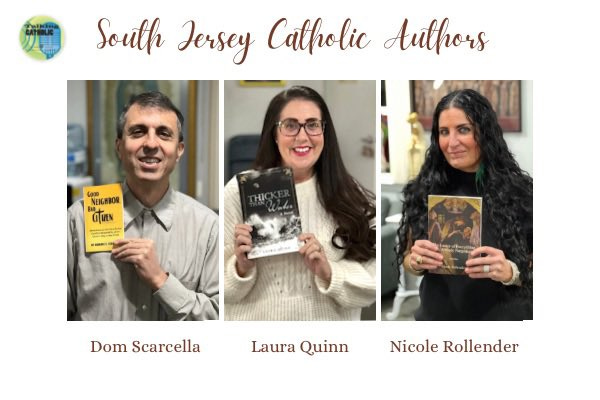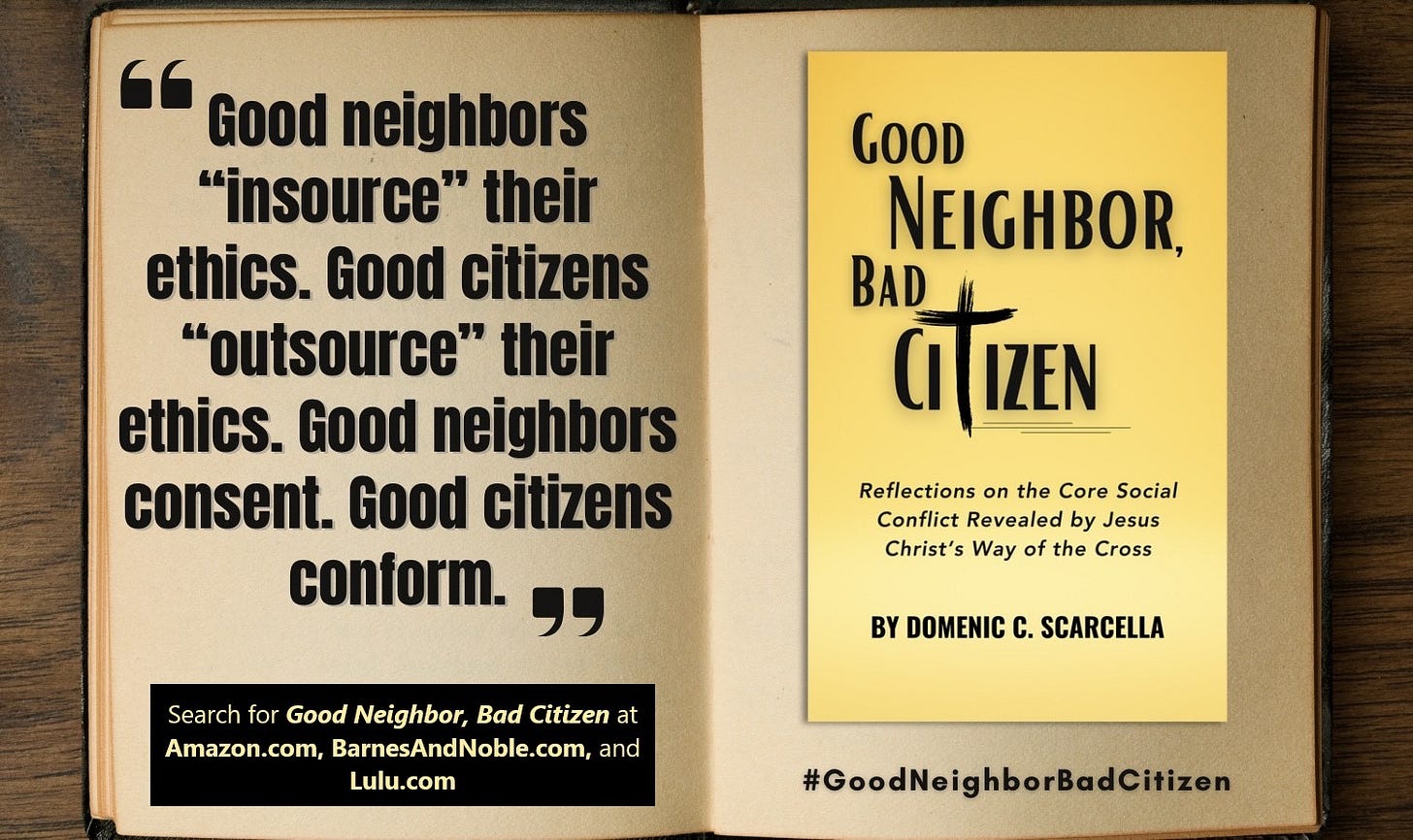In his public letter, “On the Role of Literature in Formation,” Pope Francis extols “the value of reading novels and poems as part of one’s path to personal maturity.”
It’s an intriguing topic for Christians navigating a pluralistic world, and the discussion of creative writing and reading holds lessons for anarchism/voluntarism, too.
My thoughts on the matter aren’t going to be an Appeal to Authority (the Pope said it, so it must be right!) nor an Ad Hominem (the Pope said it, so it must be wrong!); those are logical fallacies, and I avoid them to the best of my self-awareness.
The content and context of the letter, not the public persona of its writer, are most worth exploring.
I’ll also admit that I’m not a reader of novels nor of short stories. The last bit of fiction I got into was an online serial novel. My poetry exposure is almost entirely song lyrics. I’ve moved away from watching TV dramas/sitcoms and movies in the last decade.
My own writing also skews in this newsy, nonfiction direction. Good Neighbor, Bad Citizen, though steeped in narrative structure, is an examination of the historical record of the Gospels and some extra-Biblical historical tradition. I didn’t have to come up with any characters, plots or settings.
Still, I know plenty of people are drawn to fictional stories, and not necessarily to escape their real-world lives.
It is this affinity for creative writing and reading that Francis addresses and that I’d like to survey.
The value of open-ended engagement & mental effort
Early in the letter, Francis speaks to my caveman preferences for eschewing mobile devices and the more passive consumption of information that happens with electronic media:
Unlike audio-visual media, where the product is more self-contained and the time allowed for “enriching” the narrative or exploring its significance is usually quite restricted, a book demands greater personal engagement on the part of its reader.
Immersing oneself in narrative structure and storytelling isn’t merely a diversion:
With few exceptions, literature is considered non-essential. I consider it important to insist that such an approach is unhealthy. …
‘Literature is life, conscious of itself, that reaches its full self-expression through the use of all the conceptual resources of language.’
Actively engaging with novels, short stories and poems has a way of sparking cognitive empathy in the reader:
Literature, then, sensitizes us to the relationship between forms of expression and meaning. It offers a training in discernment, honing the capacity … to gain insight into [one’s] own interiority and into the world around. …
We develop an imaginative empathy that enables us to identify with how others see, experience and respond to reality. Without such empathy, there can be no solidarity, sharing, compassion, mercy.
This last point is vital to the good-neighbor anarchism/voluntarism for which I advocate.
Tapping into and developing one’s own “interiority” requires self-reflection. Without such an inner life, a person is dangerously adrift in the desire for external validation from social circles. This is the key contrast between neighbor and citizen I noted in the Introduction to my book: “Good neighbors ‘insource’ their ethics. … Good citizens ‘outsource’ their ethics. … Good neighbors consent. Good citizens conform.”
Only ‘Christian’ books? Only famous authors?
To anyone who assumes the Pope only wants people to read Church-approved works or the great “classics” of literature, the letter offers some surprises:
Literature also proves essential for believers who sincerely seek to enter into dialogue with the culture of their time. …
It was thus no coincidence that Christian antiquity, for example, clearly realized the need for a serious engagement with the classical culture of the time.
Francis cites Basil of Caesarea, a notable fourth-century figure in the Church, who “extolled the richness of classical literature produced by hoi éxothen (‘those outside’), as he called the pagan authors.”
Further back to the time of the New Testament’s writing, Francis reminds people of Paul’s fluency in ancient Greek poetry and other literature, especially as noted in the Acts of the Apostles (17:16-34).
You also don’t have to limit yourself to the “classics,” famous authors, school curricula, or whatever else popular culture and best-seller lists promote. Francis advises:
I am not asking you to read the same things that I did. Everyone will find books that speak to their own lives and become authentic companions for their journey. … [W]hile always being open to guidance, we should select our reading with an open mind, a willingness to be surprised, a certain flexibility and readiness to learn, trying to discover what we need at every point of our lives.
Reading lists can be as varied as the individual readers. And seeking out the “literary underground” (like the musical underground) can offer some wonderful surprises for the willing adventurers.
Back in January, I had the pleasure of meeting two local, independent writers — historical fiction author Laura Quinn, and poet Nicole Rollender — during a roundtable discussion on the podcast, “Talking Catholic” (listen at Spotify, YouTube, Apple, Amazon, SoundCloud, & the Star-Herald website).

I was genuinely impressed by their ability to be inventive, and we all celebrated each other’s efforts to write and publish.
Reading is a tool, and like all tools, the goodness and utility result from what each person does with it. Pope Francis’ letter is one more piece of encouragement to value the skills of literacy and creativity, and to pursue them for your betterment.
I want to read your Comments!
What’s the last book you finished reading, fiction or nonfiction?
Who’s your favorite author? Have you found any writers from the “literary underground”?
Are you a novelist, playwright/screenwriter, poet, or short-story writer? Leave a Comment with a link to your best work and/or author website (or profile at a publishing site).
Anything else strike your fancy about this article?
Let me know your thoughts …






Novels are a double edged sword, they do effect our morality and it can be good or bad or a little of both, depending on the author. Take something like Upton Sinclair's "The Jungle". Great book and on the one hand it tells us to take better care of one another, that's nice, but on the other hand it pushed collectivism, which is an evil.
I'd say that there is little doubt that novels can play a large roll in forming our morality, whether that roll is healthy or not depends entirely on the Author.
I like this. Thanks.
i like the “good neighbours consent and good citizens conform” but i see it that conforming is still a form of consent?